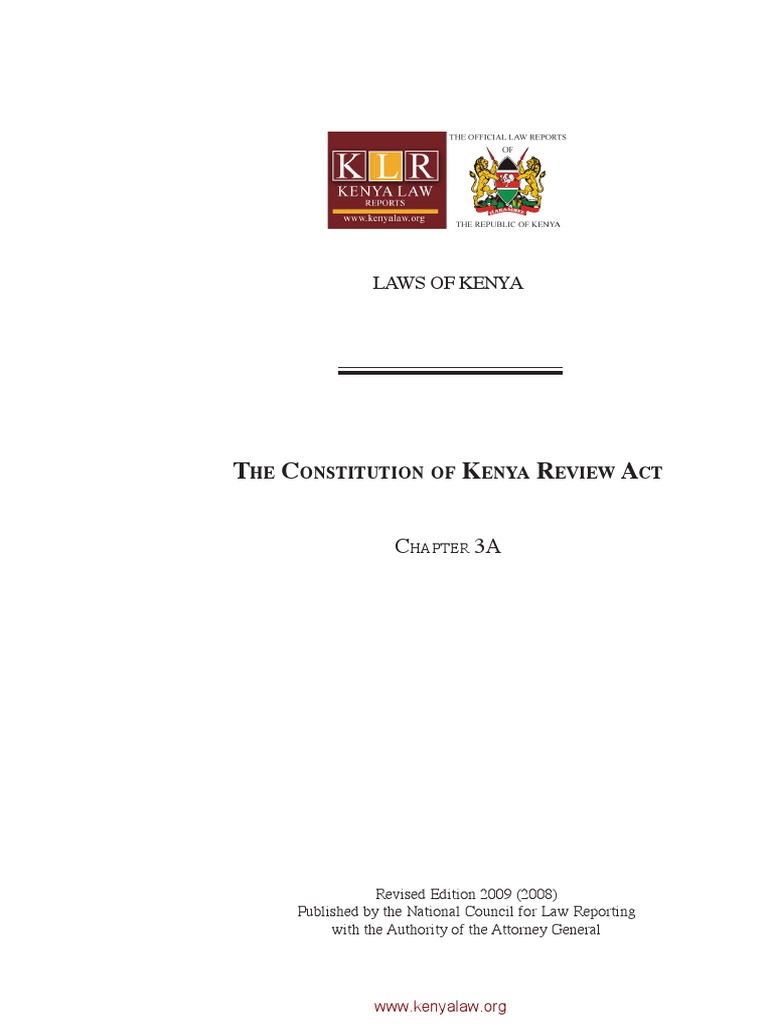Chapter 6 of the Constitution of Kenya, which delineates the principles of ethics, integrity, and leadership, occupies a pivotal position within the legal and cultural framework of the nation. This chapter acts as a beacon, illuminating the path toward fostering an ethical governance structure that resonates not only with the legalities of leadership but also with the intangible moral fabric that binds society together. The principles contained herein serve as the bedrock for responsible leadership, encouraging both representatives and the populace to embody fundamental values that reflect a commitment to the common good.
To comprehend the nuances of Chapter 6, one must appreciate it in the context of cultural relativism. This perspective posits that moral and ethical standards are not universal; rather, they are deeply embedded in the specific cultural contexts of various societies. Thus, while Chapter 6 seeks to establish a uniform standard of conduct among Kenyan leaders, understanding that its roots and implications may vary across different cultural landscapes becomes imperative. This chapter acts much like a chameleon’s skin, adapting to the myriad cultural hues found within Kenya’s diverse ethnic communities.
At the core of Chapter 6 lies the unequivocal assertion that public leadership is an institution of trust. Leaders are not merely individuals occupying positions of power; they are custodians of the public’s interests. This concept, resonating with the cultural ethos of many Kenyan communities, echoes the traditional roles of elders and community leaders who are expected to guide their clans with integrity and honor. In this light, the ethical framework established in Chapter 6 endeavors to resurrect and reinforce these time-honored values.
Moreover, the chapter delineates specific leadership principles, which include accountability, transparency, and integrity. These tenets form the trifecta that should guide decision-making processes at all levels of governance. The expectation that transparency should permeate the actions of leaders cultivates an environment where public trust can flourish. Transparency acts as a double-edged sword; it not only reveals but also protects—the act of exposing malfeasance and misdeeds shields the community from corruption and misappropriation of resources. Thus, cultural practices emphasizing communal oversight and wisdom can align harmoniously with the legal stipulations outlined in Chapter 6.
The mandate for integrity is a particularly intriguing element within the context of cultural relativism. While the document presents this virtue as a universal standard, its manifestation can vary. In some cultures, integrity may be closely associated with adherence to communal norms and respect for elders, while in others, it may hinge on individual honesty and personal morality. The interpretation of integrity can be seen as a mosaic, shaped by the influences of tribal customs, spiritual beliefs, and social obligations. Therefore, in order to apply the principles of Chapter 6 effectively, one must navigate these culturally specific meanings with sensitivity and respect.
Another salient aspect of Chapter 6 is its emphasis on the ethical conduct of leaders during electoral processes. Political integrity, as outlined in this chapter, serves as a bulwark against the scourge of electoral malfeasance, which can devastate societal trust. This resonates with cultural narratives of ‘clean hands’ in governance, where leaders are expected to engage in fair play. The metaphorical notion of ‘planting seeds of integrity’ reflects the intrinsic responsibility placed upon leaders to ensure that their actions not only yield immediate benefits but are sustainable for future generations. Such a perspective is deeply entrenched in various Kenyan cultures that emphasize legacy and the impact of one’s actions on descendants.
The invocation of cultural relativism in interpreting Chapter 6 invites a broader discourse on the significance of public leadership as a cultural construct. The diverse ethnicities within Kenya manifest complex views on ethics and integrity that enrich the national dialogue on governance. Each community’s historical narratives, moral teachings, and experiences with leadership shape their perceptions of what constitutes ethical conduct. Acknowledging this richness is vital for law-makers and the judiciary in interpreting and enforcing the provisions of Chapter 6 in a way that resonates with a broad spectrum of the population.
Furthermore, the mechanisms for enforcing the principles enshrined in Chapter 6, such as the Ethics and Anti-Corruption Commission (EACC), demonstrate an institutional commitment to elevate ethical standards. This synthesis between law and culture is essential; it underlines the principle that governance can only thrive when complemented by societal buy-in. Through education and community engagement initiatives, the EACC and other related bodies can foster cultural interpretations of ethics that are both empowering and aligned with the legal framework.
In conclusion, Chapter 6 of the Constitution of Kenya serves as a profound framework for understanding ethics, integrity, and leadership through the lens of cultural relativism. The challenge lies not only in adhering to the legal prescriptions but also in ensuring that these ideals are infused with culturally specific meanings that resonate deeply within the varied fabric of Kenyan society. As such, the chapter should be interpreted as a living document—one that evolves and adapts alongside the cultural dynamics of the nation. It is a clarion call, urging both leaders and citizens alike to bridge the gap between law and life, and to cultivate a governance culture where integrity is not just an aspiration but a tangible reality. Through this synthesis of ethics and cultural relevance, Kenya can aspire to not only fulfill the letter of its constitutional mandate but to also imbue it with meaning and purpose at every level of society.
